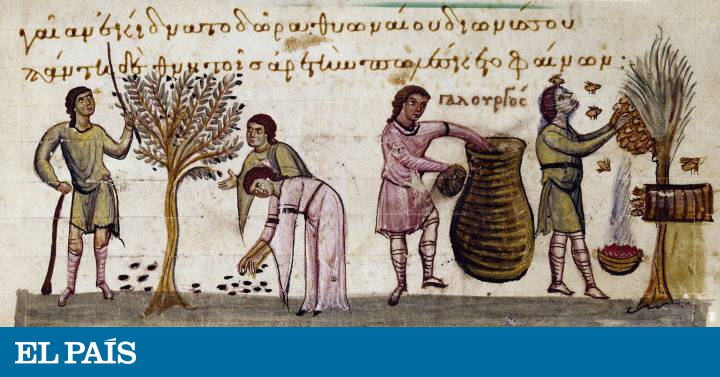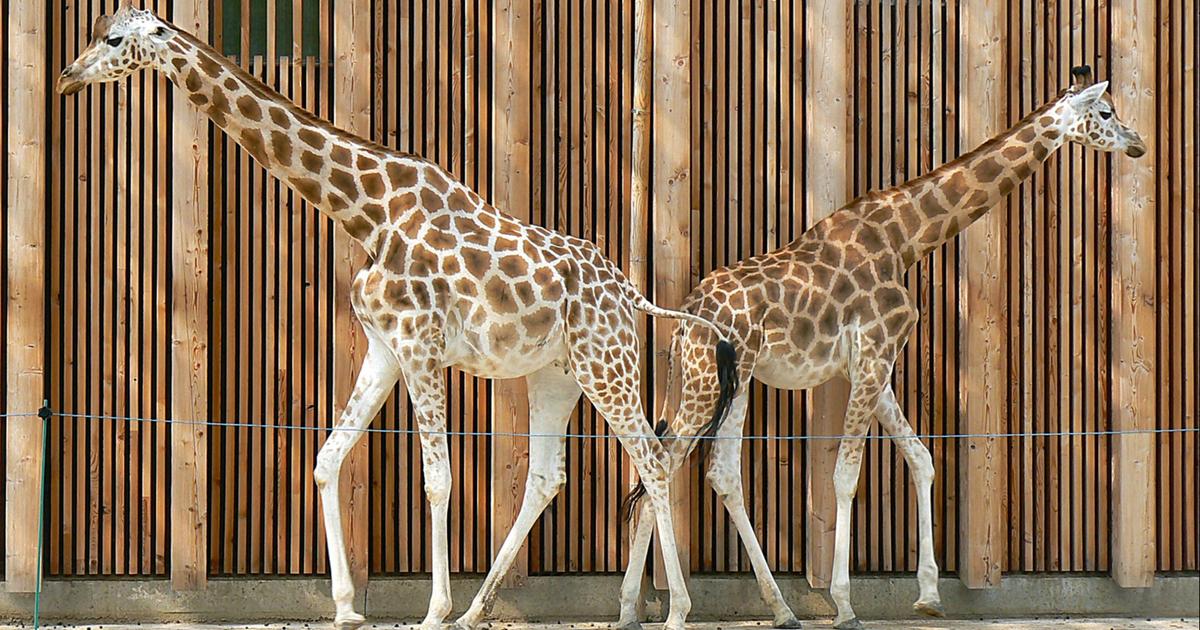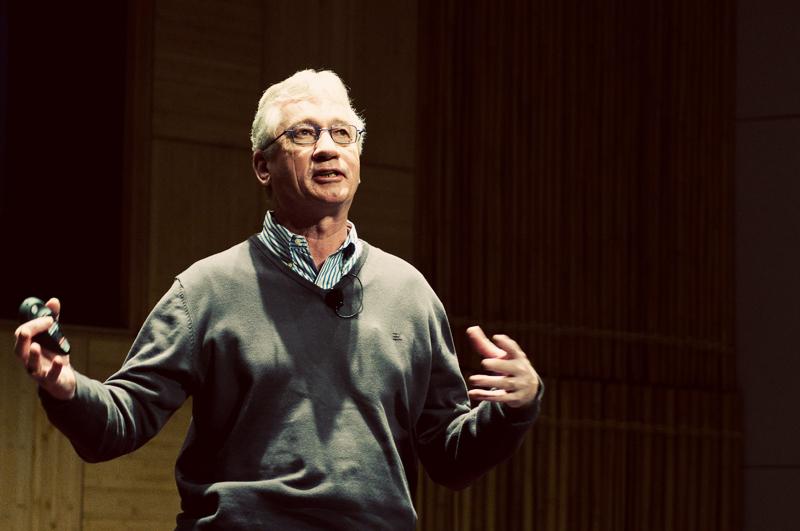Ian Morris told an anecdote that many professors of basic sociology courses are familiar with. To our students, the way of life of agrarian societies that existed until very recently is incomprehensible, distant and pathetic. Instead, the hunter-gatherer values of 10,000 years ago seem attractive, interesting, and close. "Hunter-gatherers," Morris wrote in Hunters, Peasants, and Coal , "resemble the kind of people we might run into at the bar, while the protagonists of the 11th-century epic poem The Song of Roldan seem like visitors from another." planet". In recent decades, that kind of nostalgic bias has spread to nonhuman animals. Many people seem more willing to accept their cultural kinship with bonobos than with seventeenth-century Occitan farmers.
According to the author, we are physically, socially and psychologically prone to feeling lost in social structures and natural environments far from those of hunter-gatherer societies.
Civilized to death is fully immersed in that contemporary intellectual current through which authors such as Ronald Wright, Sebastian Junger or, to a certain extent, Jared Diamond have traveled. Christopher Ryan — best-selling author In the beginning was sex — gathers information from a wide repertoire of disciplines that in recent decades have brought to light the tension between our evolutionary history and modern forms of social organization. The Neolithic revolution was not a good news, but an emergency reaction to a catastrophic demographic situation that initially greatly deteriorated the lives of human beings: the diet worsened substantially, people began to live with pets, which triggered diseases, Forms of inequality that until then had been carefully avoided were generalized ...
For Ryan, what we call civilization is a collective flight forwards that tries to alleviate the historical result, already irreversible, of that calamitous turn that occurred some 10,000 years ago. From their perspective, the result is mediocre: we are physically, socially, and psychologically prone to feeling lost in social structures and natural environments increasingly removed from those of hunter-gatherer societies, which is the exclusive way in which the human species has organized for over 90% of its history. Our bodies and minds were shaped over thousands of years to live in communities of equals that were very cohesive, with hardly any hierarchies, nomads and workloads that would make an aristocrat sigh with envy. For Ryan, the advance of civilization since the Neolithic is, in essence, the story of our self-confinement in ruined human zoos, in which we live with all kinds of unrest and suffering.
Ryan's argumentation is very marked by the theories with which he polemicizes. To a large extent, it is a response to a battalion of enraged progressologists who, led by Steven Pinker and Matt Ridley, have dug an intellectual trench from which they defend the Western civilizational vanguard, denouncing the past as a universally dark, painful and cruel age and Skeptics of that Panglosian paradigm are portrayed as narcissistic curmudgeons. In that sense at least, Ryan's essay is effective. He not only points out the abundant inaccuracies of authors like Pinker - in his case it is almost a stylistic feature - related, for example, to the levels of violence in archaic societies. It also puts on the table some dilemmas of our recent history that it interprets, in a suggestive way, as the product of an excess of civilization: the fragility of social relations, the pandemic of mental illnesses, the corrosive effects of inequality, conflict adolescent or sexual repression.
The disputes about the relationship, of advance or retreat, of our time with respect to the past are a structural element of modernity, at least since the Enlightenment. What is characteristic of the contemporary formulation of this old complaint is that it has a more empirical than philosophical tone: it discusses how many poor there are in the world, the increase or decrease in violent deaths or increases in the quality of life. In a sense, it is an improvement over traditional purely speculative debates. But what is gained in accuracy may be lost in argumentative sophistication.
The philosophical critique of the ideal of progress has never been based on nostalgia for a past world or on the denial of technological, economic or moral advance, but rather on the rejection of the idea of directionality and historical irreversibility. What Nietzsche or Walter Benjamin was arguing about was the existence of a general perspective - either that of God or that of reason - that unifies the different partial advances in a consistent historical progress. No advance is absolute, but depends on the specific point of view from which it is observed: for example, technological progress can be understood as a moral or medical reversal, and vice versa. The corollary of this critique is that human history is a repository of possibilities that we can update and reformulate. For better or for worse, we don't have to give up anything for lost.
Somehow, Ryan makes a symmetrical mistake to Pinker's: he makes a very summary and vehement judgment on an immeasurable problem. Contemporary societies are complex, and many of the characteristics Ryan attributes to overcivilization are specific to some versions of capitalism. The levels of social cohesion or inequality, for example, vary greatly from one country to another. Maybe that's why Ryan is extremely vague about ways to alleviate our supposed nature deficit. In principle, it does not seem to contemplate the possibility that 7,000 million human beings become hunter-gatherers today. It is content to improve the human zoo by bringing it closer to the conditions in which evolution has supposedly prepared us to live. But the little he says about the concrete measures that would allow progress in that direction is surprisingly modest.
Ryan bets on European social security systems to avoid the most destructive effects of inequality, collaboration on digital networks to improve cooperation ... and the use of psychedelic drugs to increase our spiritual peace. "What would happen," Ryan wonders, "if we were to strategically introduce hunter-gatherer thinking, for example, and replace hierarchical multinational structures with progressive networks of peers and collectives organized horizontally?" Wall Street and the IMF do not appear to be trembling with fear at this troglodyte threat. And it is not very clear if linking some problems of our ways of life with millennial ailments is a good way to face their roots or rather a neohippy excuse to avoid taking on the political conflicts of our time.
Author: Christopher Ryan.
Translation: Lucia Barahona.
Publisher: Capitán Swing, 2020.
Format: softcover (288 pages, 20 euros) and ebook (9.49 euros).
Find this title in your nearest bookstore






/cloudfront-eu-central-1.images.arcpublishing.com/prisa/VXIMLIHA4VDVNNPZBOFFUSXEWM.jpg)


/cloudfront-eu-central-1.images.arcpublishing.com/prisa/J332KLBPPBZ5VFKVWFAKX6T57I.jpg)